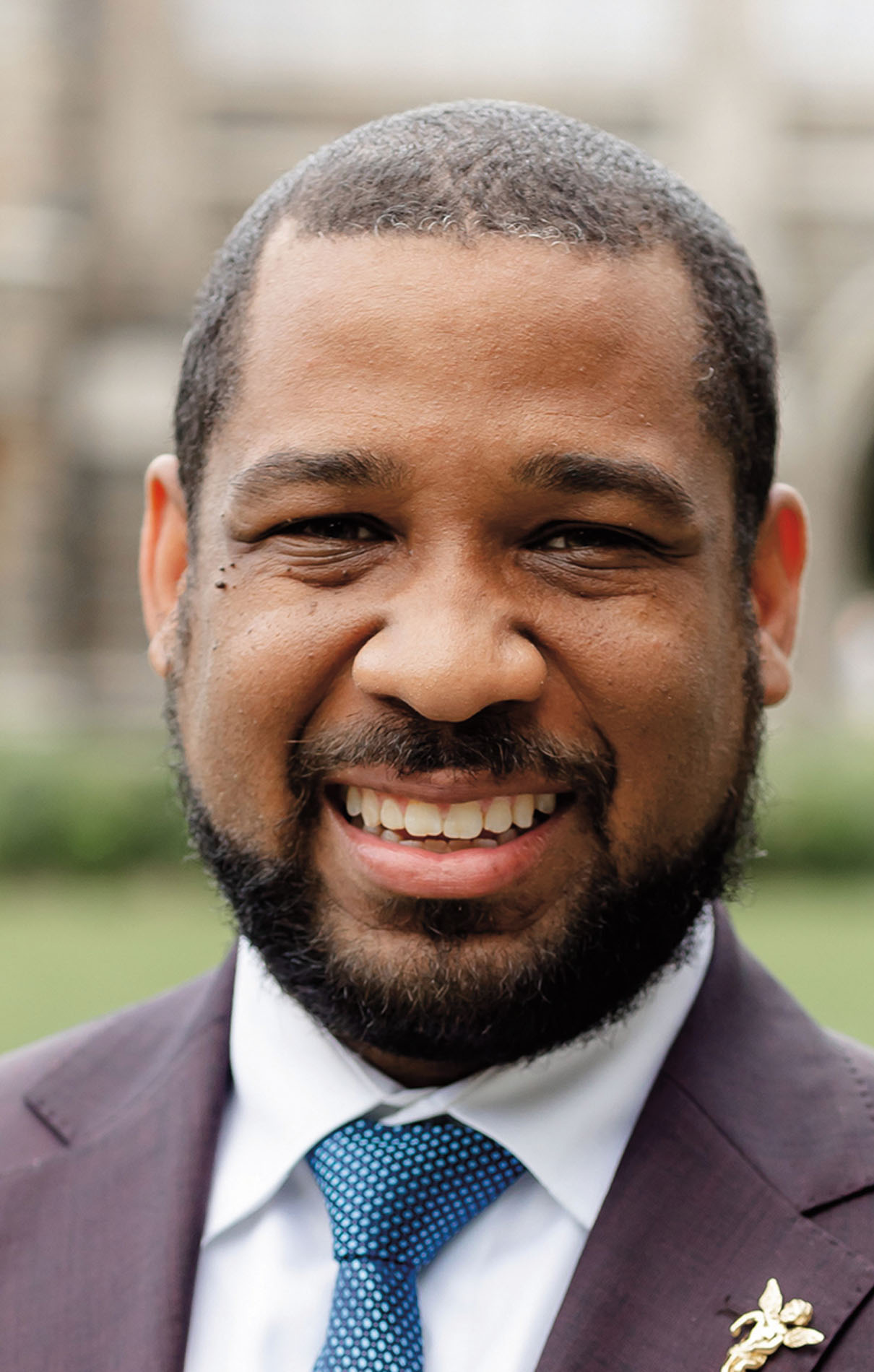Christian leaders regularly face wicked problems. They face them, and they don’t run.
It comes with the territory, says Mycal Brickhouse M.Div.’16, D.Min.’24. Clergy and faith-based nonprofit leaders navigate complex issues in their communities – “wicked problems,” per Brickhouse. These seem too big to handle and often lead to conflict. Brickhouse teaches emerging Christian leaders to look for realistic, practical actions they can take.
“Christian leadership is being able to step into that tense space and to say, ‘What is God saying to us in this tension?’” he says. “‘Where is God calling us in this moment?’”
Brickhouse directs Foundations of Christian Leadership, a course for early career Christian leaders offered by Duke Divinity. Foundations is the longest running program offered by Leadership Education at Duke Divinity. Other programs and offerings – including the online magazine Faith and Leadership – have been added and adjusted to meet the evolving needs of Christian leaders. Foundations has simply stood the test of time.
“We believe that human flourishing is possible,” says Brickhouse. “Our job as leaders is to work towards that flourishing in our local community.”
David Odom, executive director of Leadership Education at Duke Divinity, came to Duke in 2007 to launch the school’s leadership program, which was inspired by the Fuqua School of Business’s continuing education programs. From Fuqua, Odom and his staff learned to teach from experience rather than book knowledge. Leadership Education staff facilitate rather than instruct small cohorts of professionals seeking to improve their leadership and better understand their communities.
“The default is, if you’re a better person, you’re a better leader,” Odom says.
A difference between Christian leaders and business leaders, he notes, is that Christians believe that being better means being closer to God rather than improving through willpower alone. Leaders will be flawed, Odom says, and need to accept that better does not mean perfect. Theologically speaking, this means Leadership Education accounts for sin.
Another difference: Brickhouse says the emerging Christian leaders he works with learn to be open to – and often happy with – surprise outcomes. The problems Foundations attendees face have deep roots and long histories. Brickhouse encourages them to look for just one spark they can fan into flame in their community. A problem in San Antonio was isolation, for example, so a Foundations alumnus invited community members to have coffee together. This became an incubator hub. In Houston, an alumnus gathered artists together. This became a public art and art education initiative. Again and again, Brickhouse has seen relatively small positive acts snowball.
“The work that they do to develop leaders is crucial, and it does not happen in many spaces in this way,” says Mia McClain.
McClain, who is senior pastor at Riverside Baptist Church in Washington, D.C., attended her first Foundations of Christian Leadership session weeks into the COVID-19 pandemic. At the time, she was at the end of her first year as associate pastor at Myers Park Baptist Church in Charlotte, North Carolina. McClain was new to ministry, but it was her second career. Yet when she logged into this Duke Divinity continuing education course, which is usually live but was virtual in 2020, she saw people like her. They were seasoned enough to do the deep reflection and social problem-solving Brickhouse describes.
McClain remains connected and involved. In 2020, for instance, she also received a Foundations grant to research the ways white supremacy impacts Christian liturgy and spaces. It enabled her to dig deeper into a wicked problem, and all because Duke Divinity put the time and effort into developing Christian leaders. “Once you pass age 35, all the young leaders programs, you don’t qualify for them anymore. You get to a certain point and people sort of pull their investment,” McClain says. “To see Foundations continuing to invest in people, particularly who have lived a little bit and led a little bit, I think that that is very important.”
